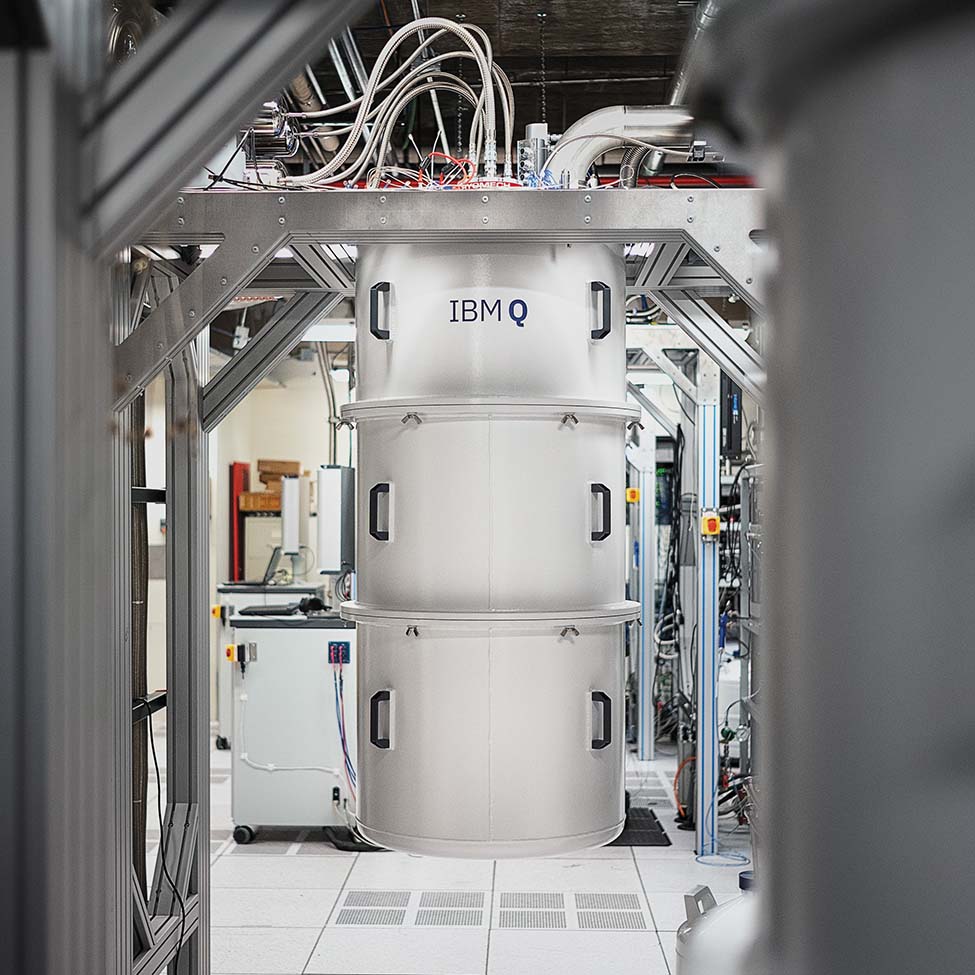The Q Initiative
IBM’s Fletcher Previn ’00 talks quantum computing, rebuffing international hackers and human beings becoming subordinate bootloaders to a master digital race.
To those of us who refer to our computer simply as “The Machine,” terms such as “artificial intelligence” and “quantum computing” can generate confusion, puzzled glares and can even conjure images of a dystopian future where humankind trembles in subservience to robot overlords. According to Fletcher Previn ’00, such fears are unfounded. Mostly.
Previn serves as chief information officer at IBM, a position that oversees a vast IT department with 12,000 employees and an annual budget of nearly $3 billion. That large team under Previn’s leadership is responsible for supporting 400,000 people throughout 170 countries around the world.
IBM operates the world’s largest privately owned network outside the U.S. government and is responsible for maintaining high-consequence mainframes for critical infrastructure related to clean water, the Department of Defense and the country’s health care systems, among other agencies. All this makes IBM and its clients prime targets for rogue hackers and global adversaries alike. A large portion of Previn’s time is devoted to securing those assets against hacking that originates in countries such as Russia, China, Iran and North Korea, especially with emerging technologies such as quantum computing—which dramatically increases processing power and has the potential to crack, in just seconds, encryption codes that would ordinarily take centuries to crack with traditional computers.
“There’s an alarming trend in technology where the bad guys seem to have the advantage,” Previn said, upon returning to campus in October to speak with students about his career and the challenges tech companies such as IBM are facing today and beyond the horizon.
While at Conn, Previn addressed the promise and the pitfalls of living in a world where so much digital data is produced and consumed every second of the day; he also discussed quantum computing and advanced artificial intelligence, areas that are increasingly intertwined and where IBM has been at the forefront.
“The challenge for me is to combat [the advantage of bad actors] by understanding IBM’s global footprint and networks and the systems that underlie those networks better than the people who are trying to break into them. At the end of the day, well-run networks really do make the life of our adversaries a lot more difficult,” he said, noting that IBM currently has a large quantum computer called the “Q System One” housed in its facility in Yorktown Heights, New York.
While there were early indications that Previn was interested in tech (for his 10th birthday he asked for a cake shaped like a computer), there was an assumption that he would follow in the footsteps of his parents—actress Mia Farrow and Academy Award-winning film composer André Previn—and pursue a career in entertainment.
“I spent a fair amount of time growing up around entertainment and on movie sets, and thought I would go into that line of work for a while,” Previn said. “While I was a student at Conn, I even worked as a writing intern at The David Letterman Show and The Conan O’Brien Show, but ultimately it became clear to me that I wanted to go into tech,” he said, explaining that he met his wife, Gillian Desjardins ’99, while working at the IT help desk in Conn’s Shain Library.

